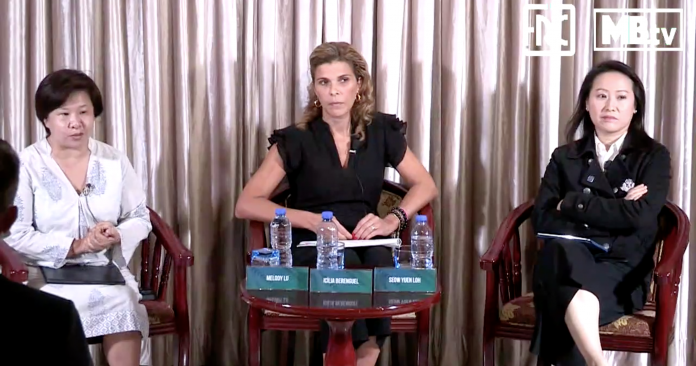Acknowledging the good will from the government in introducing the new bill regulating the operations of employment agencies in Macau, a panel of manpower experts stated today (Thursday) that the authorities should do more.
The remarks were made in the third webinar session of “MBtv Debates”, organised by MBtv — an online television channel under Project Asia Corp that also owns Macau Business and MNA — in partnership with the Rui Cunha Foundation and the Macau International Conferences and Conventions Association.
The Legislative Assembly last month approved a new version of the law for governing the employment agencies here, including a cap on the fees the agencies could charge non-residents workers, which will come into force next March.
An amendment to the rules for the recruitment of non-resident workers has also been effective since early this month, now banning non-residents to look for jobs in the city with just tourist visas.
Speaking in the webinar today, titled “Blue Card Holders – The Unloved?”, Seow Yuen Loh, managing director of MSS Recruitment Ltd, one of the prominent manpower firms in the city, remarked: “In the past, they could just come to Macau, do some trial jobs for [potential] employers, and stay and work in Macau if they get greenlighted [from the authorities]. Now they could not do this anymore and they have to start right from their home of origin [to look for a job in Macau].”
“This [past] practice opens up the possibilities of risks that the workers might be exploited… because they are not here legally. That’s not the best option for the protection of both employers and employees,” she said.
As the panel praised the government’s initiative to better regulate the labour market, Melody Lu, an associate professor from the Department of Sociology at the University of Macau, cautioned whether these new regulations might increase the recruitment fees beyond the affordability of both employers, such as, small-and medium-sized enterprises (SMEs), and non-resident workers with low salaries.
According to her previous research, for low-to-middle-skilled migrant workers here in the hospitality segment, they have to pay now about three months of their salaries for employment agencies as recruitment fees, while domestic workers have to pay about two months of their salaries.
“The intention of the law is very good… because [the government] does not want the recruitment fee to be too high,” Prof Lu noted. “But they forget that it is a global system and you cannot just simply regulate brokers [employment agencies] in Macau.”
Before landing for a job in Macau, non-residents workers, particularly for low-to-middle-skilled jobs, have to pay recruitment fees several times to different employment agencies in Macau and at their home of origin.
The academic noted: “These new laws will definitely increase quite a lot the costs for migrant workers to come [and work] in Macau. So the consequences will be: A. Macau is not a desirable place for them to come anymore… because they have many other places to go; B. These will increase the possibilities of exploitation before they come to Macau.”
“Many countries have solved these problems by having an arrangement between the sending and receiving countries [of migrant workers]. They try to work out a fairer and less exploited system together,” Prof Lu continued. “But the Macau government, at the moment, doesn’t really engage the governments, NGOs [non-governmental organisations] or businesses in the sending sides.”
The MBtv Debates panel, which also includes Icília Berenguel, a senior associate lawyer at local law firm C&C Lawyers, also discussed today the situation of non-resident workers here in the aftermath of the novel coronavirus (COVID-19) pandemic.
According to figures from the Labour Affairs Bureau (DSAL), the number of non-resident workers stood at 182,711 as of end-August this year, down by over 13,820 when compared to end-2019.
Some non-resident workers, particularly non-Chinese, have complained they have been treated differently amid COVID-19, for instance, Chinese migrant workers could now enter and leave the city, while the doors are still closed for non-Chinese; residents are entitled to government subsidies like consumption vouchers while non-residents are left out.
“The subsidies implemented by the government are to help residents to face the difficulties that they have — one important thing people forget is that non-resident workers have specific employment contracts, which do not allow employers to suspend their contracts or unpaid leave, but all these can be done [for] residents,” Berenguel noted.
Acknowledging no countries or cities will have the same treatment for residents and non-resident workers, both Loh and Prof Lu pointed out more could be done for the treatment of non-resident workers here in a humanitarian perspective.
“We are interdependent with foreign workers, or our lives are interlinked with them. On that basis, they are together with us as one. They might have other nationalities but we’re all contributing to the same vision of making Macau a better city,” Loh added.




















